Stakeholder Dialog
To reflect the opinions of our stakeholders in our corporate activities, we have annually held dialog with academics and experts in various fields of sustainability since 2015. For this fiscal year, the 9th dialog was held in May.
In last year’s stakeholder dialog, while we listened to how sustainability has actually been promoted in companies, important viewpoints of “not making it a task for disclosure” and “making sure that employees can personalize sustainability” were proposed. It was also recommended that we should confirm individual purposes while promoting activities because the company’s purpose is an aggregation of purposes of each employee.
By referring to these recommendations we had received, NTN started a “Carbon Neutrality Promotion Project” in last July to set targets and strategies toward achievement of carbon neutrality. In addition, to promote this project from a location closer to management, the organization was changed in April 2023 to the “Carbon Neutrality Strategy Promotion Department” and turned to a department in the Group Management Headquarters.
Also, “NTN PROUD AWARD,” originally started in 2018, was revised into an ESG activity award system and newly restarted on a full scale last year. Through these activities, we are steadily getting closer to achievement of our materiality targets.
In this dialog, we exchanged opinions with experts about the status of our activities and how to proceed in the future. Based on the recommendations we received, we will promote company-wide initiatives for realization of a “NAMERAKA Society.”
(*Assignment and title of participants are as of the dialog held.)
9th
Held in:
May 2023
Participants
Experts
-

-
Katsuhiko Kokubu
Professor, Kobe University Graduate School of Business Administration
-

-
Akira Yamada
Senior Consultant JMA Consultants Inc.
-
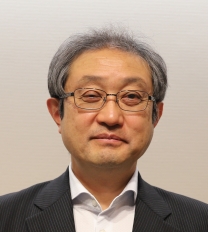
-
Toshiya Chikada
Executive Officer
Chief Manager
Global Warming Prevention Promotion Office Environment Improving Department
Sekisui House, Ltd.
-

-
Michitaka Shimizu
Senior Director
ESG Management Promotion Headquarters
Sekisui House, Ltd.
-

-
Eriko Nashioka (Facilitator)
Representative Director of Institute for Environmental Management Accounting, CPA.
NTN
-
Shumpei Kinoshita
Executive Officer
Deputy Corporate General Manager, Group Management Headquarters/Corporate Strategy Department/ESG Promotion Department/Carbon Neutrality Strategy Promotion Department
-
Yasuhiro Kawabata
Executive Officer
Deputy Corporate General Manager, Group Management Headquarters/Human Resources Strategy Department/Personnel Department/General Affairs Department
-
Yasuaki Takahashi
Deputy Corporate General Manager, SCM Strategy Headquarters
-
Takashi Nishigaito
Manager, Corporate Strategy Department, Group Management Headquarters
-
Masayuki Yamazaki
Manager, Carbon Neutrality Strategy Promotion Department, Group Management Headquarters
-
Tetsuya Ishimoto
Manager, ESG Promotion Department, Group Management Headquarters
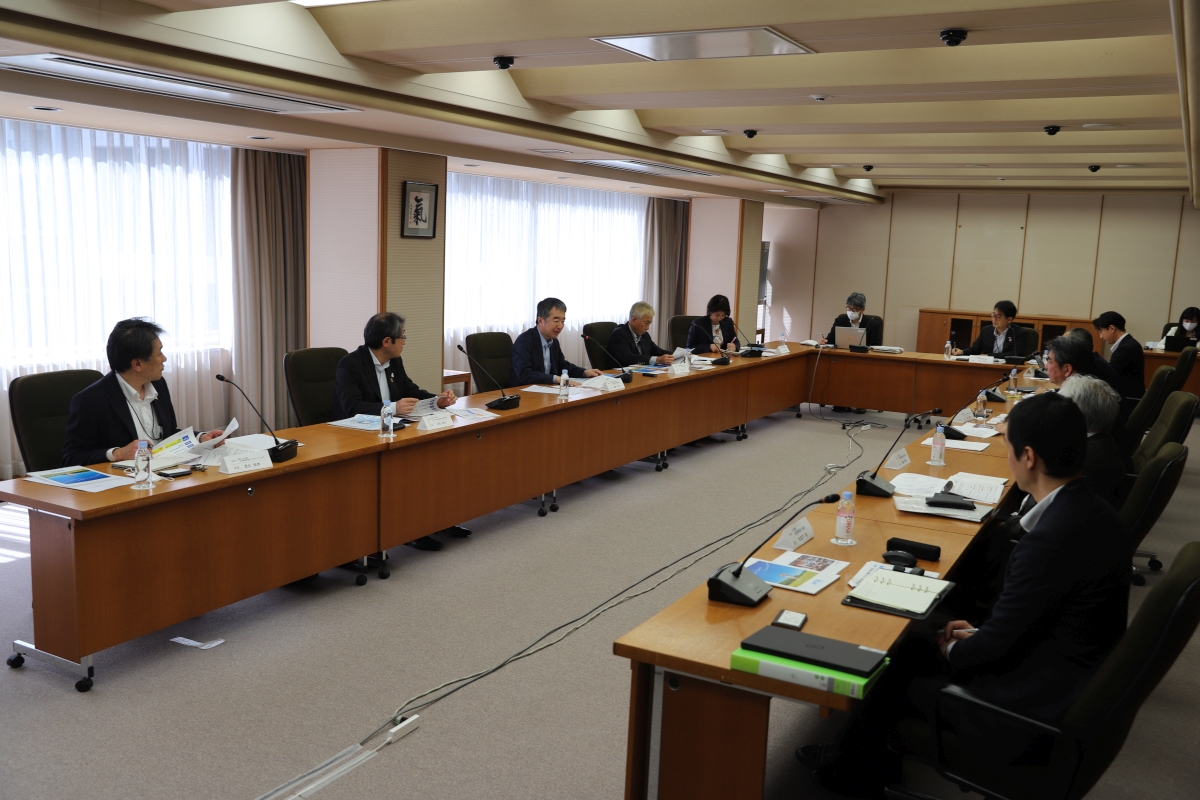
Topic 1 How to proceed with ESG management
- NTN
-
Based on the various recommendations we received in last year’s dialog, we are now promoting activities for ESG management through not only bottom-up but also top-down approaches to communicate messages on risks and opportunities specifically linked to management strategies with the timeline fixed in the medium to long term in an easy-to-understand manner. Establishment of the “Carbon Neutrality Strategy Promotion Department” was also part of it. Besides, we think “NTN PROUD AWARD” was successful as the first convention after system renewal, with participation of 69 teams from all over the world.
With regard to materiality, NTN is considering incorporating the current materiality for achieving SDGs into the next Medium-term Management Plan as the materiality for achieving the company’s purpose, while proceeding with establishment of a system that enables each employee to “personalize” sustainability activities.
We hope to obtain tips on our ESG management promotion in the future in reference to initiatives promoted by Sekisui House, Ltd. (hereafter, Sekisui House), a company going ahead of us, though in an industry different from ours, and opinions from experts. - Kokubu
-
I see that NTN has set specific strategies and is going ahead along them. In your industry, the external pressure toward sustainability is strong, but I don’t think there are any deficiencies or issues in your target setting for carbon neutrality, identification of materiality, disclosure of related information, and initiatives. In other words, I can say that there are no problems in the “foundation.” However, as I also said last year, the foundation is easy to build because it is a “form.” What is important is to link it to the creation of actual corporate value. It is necessary to focus on ESG activities because a framework for evaluating them has already been established and a low evaluation may affect investment, but too much alignment with evaluation may make it mere a formality. Therefore, it is necessary to figure out how not to make it mere a formality. In that point, I strongly hope that “NTN PROUD AWARD” will be successful as one of your systems for value creation. It would be a good idea to bring out and deploy new businesses from it. But it will not work out if you try to earn quick profit. Instead, you need to think it as investment for the future, even if certain time and cost are required. The difficulty in creating value through ESG management lies in not being able to set a goal soon because you cannot tell what you can do. However, even while you are uncertain, it is important to continue to think what you can do by utilizing your bearings and related technologies and know-how, and to establish a system that enables you to invest currently available resources for that purpose. Otherwise, ESG management will soon turn into a mere formality. In this regard, “personalization by managers,” sited as one of your future issues, is an important aspect. It is recommended that managers will proceed with it as a task, with more specific targets.
Meanwhile, who will bear the cost is another very important issue. It is also related to the next topic, carbon neutrality, and I think there are two vectors for how to view the cost. One is to promote carbon neutrality strongly with advanced technologies, ask customers to understand the cost, and reflect the cost in product prices. The other is to pursue carbon neutrality at a level considered necessary and sufficient in the industry and control the cost within the scope. It depends on each company’s level of technologies which strategy is reasonable, but it is necessary to refine strategies through validation. It is also unpredictable how fast and in which direction the external pressure will move on. The pressure also differs depending on the region, so it is necessary to set strategies by proactively considering where you are located in the move toward carbon neutrality. - Nashioka
- The importance of strategies was just mentioned, so please share how ESG has been integrated into strategies at Sekisui House.
- Shimizu
-
We announced our sixth Medium-term Management Plan in March this year. This project was started in June last year, and business divisions and corporate divisions have repeated discussions together for it. More specifically, regarding our global vision of “make home the happiest place in the world,” we have considered our priority measures, or what we will achieve with the next Medium-term Management Plan.
With regard to ESG management, we have created the foundation through the fifth Medium-term Management Plan, and we think the key for it is to “personalize,” as previously mentioned. “Participation of all employees” was one of the pillars of ESG management also in the fifth Medium-term Management Plan, but we determined to further enhance the initiative and promote the “ESG management through participation of all employees,” unique to the Sekisui House Group. This was set as our ESG management strategy in the sixth Medium-term Management Plan. Besides, to “build an organizational culture that fosters innovation,” we established an award system called “SHIP (Sekisui House Innovation & Performance Awards)” and have implemented initiatives to develop autonomous persons and organizations that will continue to produce innovations. We are also working to “set and implement ESG indicators” to utilize ESG indicators for ensuring the transparency and effectiveness, including setting ESG indicators easy to be understood by employees and establishing a system to link ESG indicators not only to compensation for directors but also to awarding for business sites. Our strategies also include reduction of capital cost through further promotion of ESG management and improvement of our corporate value through the synergy of ROE improvement and ESG management promotion. - NTN
- Thank you very much. “Cost” was mentioned earlier, and that is the very thing we are also concerned about. Our products reduce energetic load in themselves, which contributes to sustainability, but of course, their production process consumes water and electricity. It is difficult to reduce the environmental load to zero in production of all products, but we sometimes think that it would be easier to reflect cost increases in product prices by segmenting each product. For example, it may be effective to produce products using only natural energy such as wind and solar power and convince customers of the value. How do you regard the environmental cost at Sekisui House?
- Shimizu
- The cost is partly absorbed in-house, but basically, we ask the customer to understand the added value and reflect the cost in product prices.
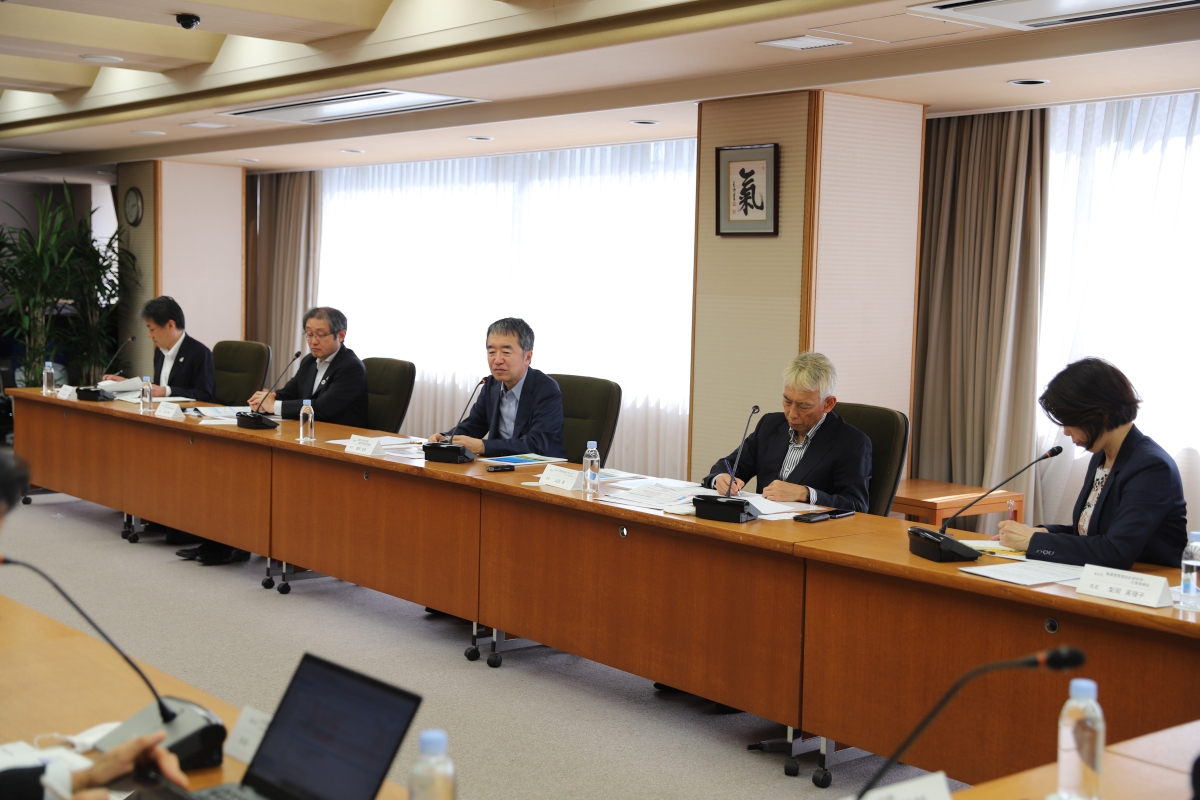
Topic 2 Carbon neutrality
- NTN
-
Through our Carbon Neutrality Promotion Project started in July last year, we have been considering how to materialize each initiative with the following three teams organized: “visualization of power consumption,” “planning and consideration of purchasing renewable energy power” and “consideration of internal carbon pricing (ICP).” The activity period ended on March 31 this year, and the initiatives were taken over to the Carbon Neutrality Strategy Promotion Department organized in April.
Through each initiative, a rough roadmap was prepared in Japan. In the future, we plan to establish a Carbon Neutrality Promotion Committee structure for global engagement in regional units. Could you give us advice on challenges such as setting intermediate annual targets and how to check a global CO2 reduction roadmap once prepared. - Yamada
- I feel that a structure has gradually been organized toward a challenging goal. In establishing a roadmap, it is better to estimate first how much energy consumption can be reduced. To do so, you need to accumulate expertise from in-house energy-saving specialists and set energy-saving control points and completeness evaluation standards for each equipment. This will roughly clarify how much more energy can be reduced at each plant. Once the potion of energy saving is made clear, you can see how much more reduction is required using renewable energy, which makes the related cost visible. With regard to energy saving, it can be said that the Energy Conservation Promotion Group organized in the Carbon Neutrality Strategy Promotion Department has a large role to play. “Visualization of energy consumption” is listed as one of your measures, but is it clear how and what to “visualize”? One possible first step is to visualize how effectively energy has been utilized in each process. This will quantify the total loss and visualize the limit. Even if it is impossible to eliminate all losses, I think the seriousness in engagement will differ between energy-saving activities conducted blindly with the limit unknown and those conducted, for example, with knowledge that 80% of energy consumption in the process is loss. It is also necessary to think about fixed energies. Energy-saving should always be discussed in connection with production activities. By thinking that energies not contributing to production are all losses, it is better to proceed with initiatives for thoroughly reducing fixed energies. In QCD activities, the lead time, man-hours, quality standard, etc. are documented and monitored for each product and process. Controlling energies also at the same level will probably show the route toward achieving your goal more concretely.
- Kokubu
- Achievement of carbon neutrality is unavoidable, but if you don’t understand what carbon neutrality is, you may still be able to set a plan, but unable to understand its meaning. For example, you have a plan to reduce most of the emission by utilizing renewable energy, but NTN seems to cover a higher ratio by purchasing CO2-free electricity at present. If going to extremes, you can achieve carbon neutrality if all electricity you purchase is renewable energy. However, that means you practically make no efforts. Rather, it is important to try to generate the source of green electricity as much as possible. When thinking of electricity self-sufficiency, carbon neutrality will probably take on new meaning.
- Yamada
- The most important thing in renewable energies is “energy creation.” The first thing you should consider after reaching complete energy saving is where you can create electricity. You should first look for on-site locations, and then off-site locations. This initiative should be given a high priority. If this is not enough, purchase CO2-free electricity. I recommend this sequence.
- Nashioka
- In summary, I think true carbon neutrality is to ask each company to create electricity on-site. Could you share a related business case at Sekisui House?
- Chikada
-
For the past one year, we have focused on net zero energy houses (ZEHs) for rent. While ZEHs for sale are gradually gaining popularity, those for rent are still far from becoming popular.
There are two types of ZEHs for rent: building-wise ZEHs and house-wise ZEHs. For our rental houses, we promote the latter, in other words, the type of ZEHs that aim at zero energy balance at each house. The former has a high energy-saving performance as the whole building, but you can’t tell whether each house is ZEH or not, so we cannot convince residents of the advantages of ZEHs, such as the comfort and lower utility costs. But advantages of the latter are convincing, so we can even raise the rent. Anticipating an increased number of ethical consumers decades later, we are now proposing would-be owners to build house-wise ZEHs, which will require higher initial cost but remain competitive in the longer term, and this proposal is being accepted. Also, according to our survey on former residents of ZEHs for rent, 80% answered that they want to live in ZEHs again. That means we are increasing ZEH fans. We are trying to create a trend toward ZEHs for both sale and rent. - Nashioka
- I heard that something had motivated your employees to personalize carbon neutrality.
- Chikada
- That’s right. In 2009, we commercialized houses with a pretty high energy-saving performance at the time, the predecessor to ZEH. At the same time, we changed our sales policy from “price-based” to “value-based.” We started our journey in the direction of presenting high value-added products to customers, making them understand the value, and selling our products at adequate prices. At first, some sales representatives felt uncomfortable, but once successful experiences started to emerge, an increasing number of representatives followed suit. All of us studied quite hard because we needed to learn to talk about product value in order to convince customers. I think this led to personalization of carbon neutrality.
- NTN
- We understand it’s a good business model in the food, clothing and housing industries, in that added value is recognized by customers, which in turn creates a positive chain reaction. Then, what initiatives should we implement in our industry, which is far away from food, clothing and housing.
- Chikada
- We also have suppliers. And we communicate to suppliers our expectation for them to use carbon-free building materials. In the construction industry, a trend toward using such materials even with higher costs has also emerged. Likewise, demands for carbon-free products may emerge at various bearing user companies. Still, I think this should not be tackled by a single company, but requires movement across industries.
- Yamada
- Recently, we are increasingly asked for advice also from the supplier side. For example, one of our customers asked us to show the result of LCA (Life Cycle Assessment) of their products. If products are produced completely with renewable energy, that would be a big differentiator. If you can launch initiatives ahead of other companies, I think that will become your strength in the future society.
- Nashioka
- Could each of you summarize today’s dialog?
- Chikada/
Shimizu - We have been engaged in ESG management for three years, and realized that success will be brought only through steady and diligent effort. At the beginning, it was mentioned that “a form can be created,” but we, having no form, were hit by the wave of ESG after launching our products. We now feel the difficulty of creating a form. We hope to continue our engagement while sharing information each other.
- Yamada
- NTN has declared reduction of energy loss. Bearings reduce energy loss caused by friction of rotating objects, etc., but certain loss still remains. I think you can increase the importance of and interest in bearings by clearly explaining, for example, how much impact automotive hub bearings have in global scale, or your current effort to reduce the loss as much as possible. I also feel it important to increase the sales of environment-contributing products.
- Kokubu
- I have an impression that we had many talks that lead to management during today’s dialog. This reflects the fact that, although environmental initiatives surely lead to management, each company has been confused with the gap. Carbon neutrality is not an issue that can be addressed through conventional methods of production and sales. I think it is important to view it as something you need to tackle strategically in a top-down approach.
- NTN
- Thank you very much for your precious recommendations. This is an opportunity for us to gain insights. We’d like to reflect recommendations we received today in our future initiatives. We will move forward step by step while sharing the significance of our initiatives within the company. We would highly appreciate your continued advice. Thank you very much for today.
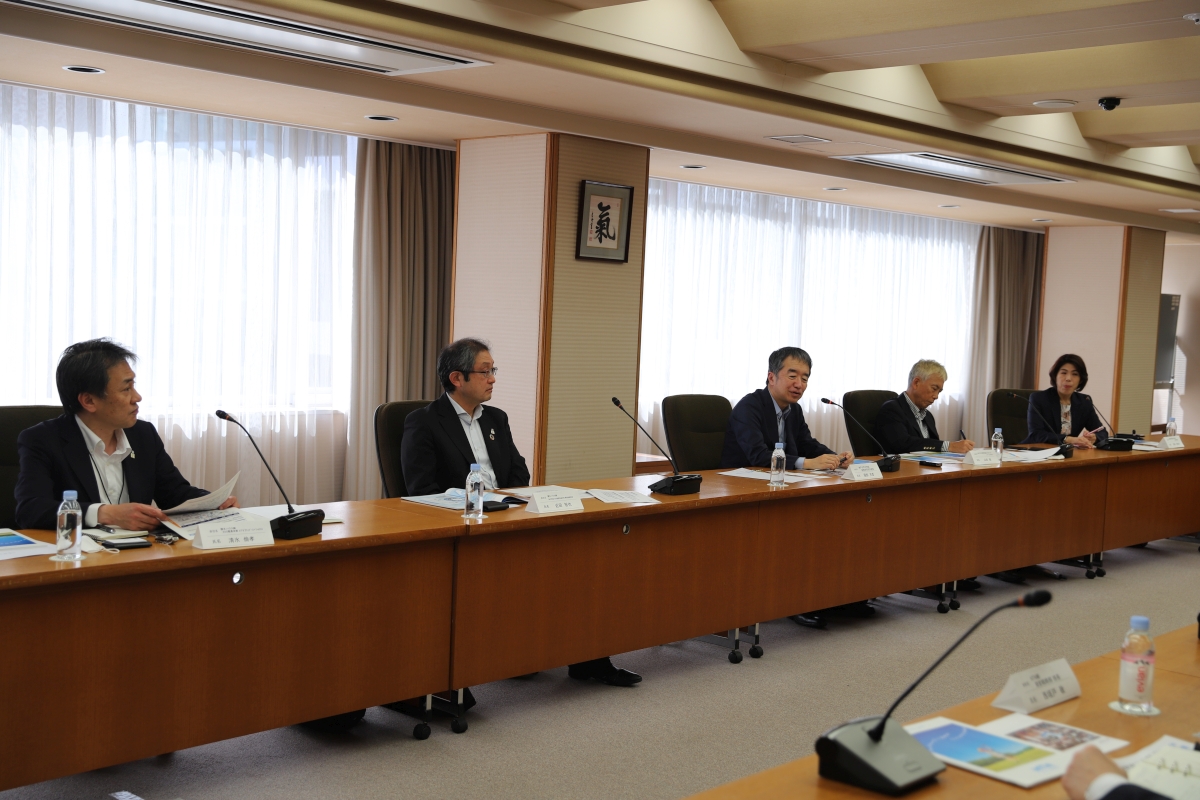
- 8th
-
Date
June 2022
Participants
Experts
-

-
Katsuhiko Kokubu
Professor, Kobe University Graduate School of Business Administration
-

-
Akira Yamada
Senior Consultant
JMA Consultants Inc.
-

-
Toshiya Chikada
Executive Officer
Chief Manager
Global Warming Prevention Promotion Office Environment Improving Department
Sekisui House, Ltd.
-

-
Michitaka Shimizu
Senior Director
ESG Management Promotion Headquarters
Sekisui House, Ltd.
-

-
Eriko Nashioka (Facilitator)
Representative Director of Institute for Environmental Management Accounting, CPA.
NTN
-
Masaaki Yamamoto
Executive Officer
Corporate Strategy Headquarters/
Europe & Africa Region/
General Affairs Department/
CSR Headquarters
-
Yasuhiro Kawabata
Executive Officer
Corporate General Manager, Human Resources Headquarter/
Manager, Global Human Resources Development Department/
EHS (Environment, Health & Safety) Integrated Management Department
-
Shumpei Kinoshita
Executive Officer
Corporate General Manager, Corporate Strategy Headquarters
-
Takashi Nishigaito
Manager, Corporate Planning Department, Corporate Strategy Headquarters
-
Tatsuo Nagao
Manager, Corporate Communications Department, Corporate Strategy Headquarters
-
Masayuki Yamazaki
Manager, EHS (Environment, Health & Safety) Integrated Management Department
-
Ryuma Mano
Manager, Procurement/
Logistics Department, Global Procurement Headquarters
-
Yoshitaka Suzuki
Manager, Production Strategy & Control Department, Production Headquarters
-
Masaaki Masumoto
Corporate General Manager, CSR Headquarters
-
Kouhei Iguchi
Manager, Corporate Value Promotion Department, CSR Headquarters
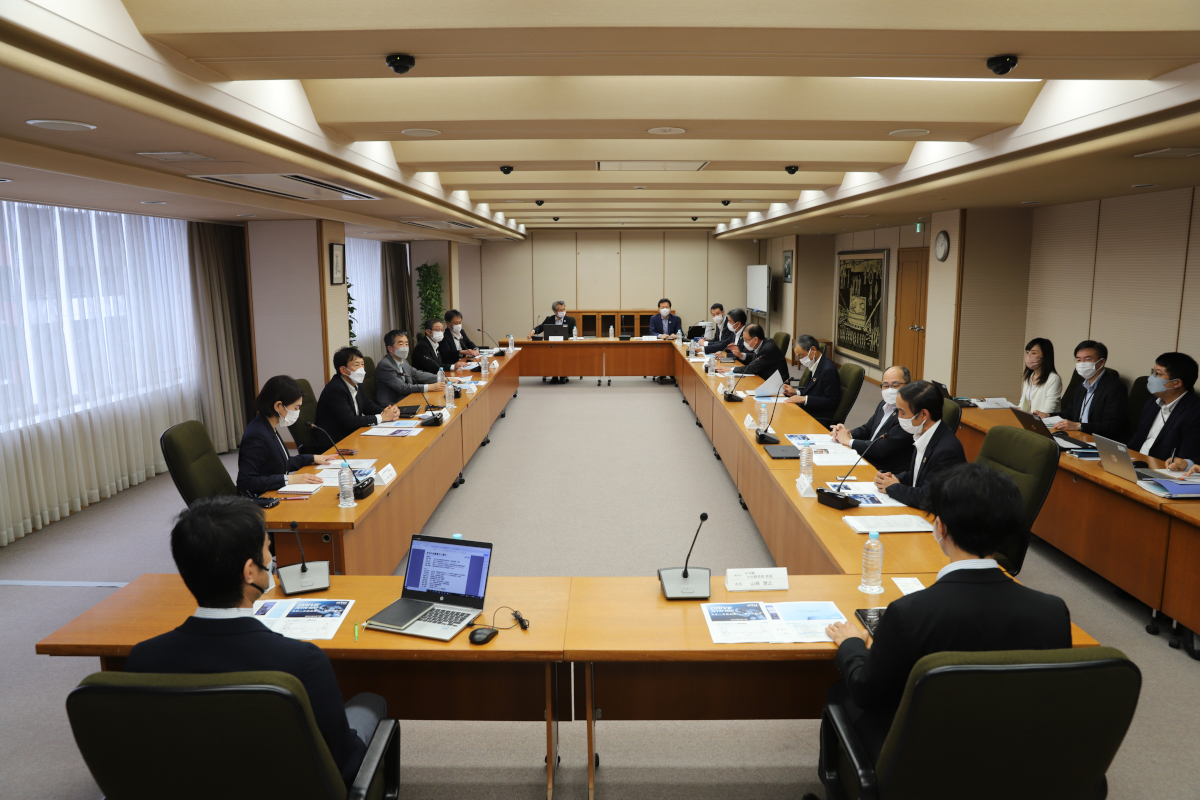
Topic 1 How to proceed with ESG management
- NTN
- We formulated a roadmap to promote ESG management in line with materiality. Could you give us your opinion on how to deploy materiality throughout the company and promote ESG management in the future?
- Kokubu
- Materiality means that something is important for social issues, and under normal circumstances, the resolution of materiality needs to lead to the resolution of social issues. However, this is extremely difficult for companies, and I have the impression that materiality has been identified in order to build a company sustainability management system. In this sense, NTN's materiality is also currently used to determine important areas for sustainability activities. Therefore, from among the 13 items of materiality, the question of whether or not NTN can strategically address social issues by linking NTN's activities with social issues will become important in the future.
- Shimizu
- I feel that NTN's materiality is extremely good in that it is developed logically by dividing society issues into strengthening positive impacts and reducing negative impacts, while linking them to the corporate philosophy. I think that the ideas and values of the company are appearing as a result of sincere efforts while referring to the guidelines as well. Here are some of our examples of how you can translate those ideas and values into future initiatives. Sekisui House, Ltd. (hereafter, Sekisui House) reviewed the identified materiality in one year. This is because the challenge of not being able to "personalize" the materiality when it was deployed to employees became visible. To prevent a situation where only some people in the company engage in ESG and sustainability initiatives, we are creating a system that allows each employee to personally address management issues. I hope that taking a step to ensure employees' awareness, understanding, empathy, and action will lead to ESG and sustainability management in the true sense of the term.
- Yamada
- As a whole, I feel that aiming for "realization of a NAMERAKA Society" is a good concept. Among the 13 items of materiality, I think that NTN's distinctive characteristics emerge in the three materiality categories of "Contribute to society through creation of original technologies." On the other hand, the ten contents of "Form management systems / corporate organization which are essential for NTN, as a global company" apply to all companies, so how about setting specific indicators and quantifying them? By doing so, you can not only show the impact externally, but also promote initiatives with a sense of consent within the company.
- NTN
- We think it is necessary to confirm whether our 13 items of materiality are acceptable to our employees. It is pointed out that our materiality is exhaustive, but there are some who believe that the company's efforts to address the current materiality have just been rearranged from the ESG perspective. Rather than picking up what we are doing, we need to show our goals and think about what we have to do to achieve those goals.
- Kokubu
-
In that regard, I look forward to the new NTN PROUD AWARD that recognizes sustainability
activities. The award system
has been difficult to implement, and there is some inconsistency between encouraging
sustainability activities and
seeking revenue responsibility. To overcome this, you must change the system of the
entire
company so that employees can
be satisfied and motivated to conduct such activities. To put it the other way
around, if
you can build a solid system,
it will become a stimulus and employees will be able to work on the activities with
enthusiasm.
In addition, while the company's purpose is emphasized in recent sustainability management, the term "purpose" is originally the significance of an individual's existence. When individuals' purposes are aggregated, they become a common purpose, which in turn leads to a corporate purpose. Instead of splitting the corporate purpose into individual purposes, it's a good idea to look at employees' purposes and proceed while making sure that the corporate purpose is in line with them. I think it is important to carry out NTN PROUD AWARD until it becomes the company's corporate culture.
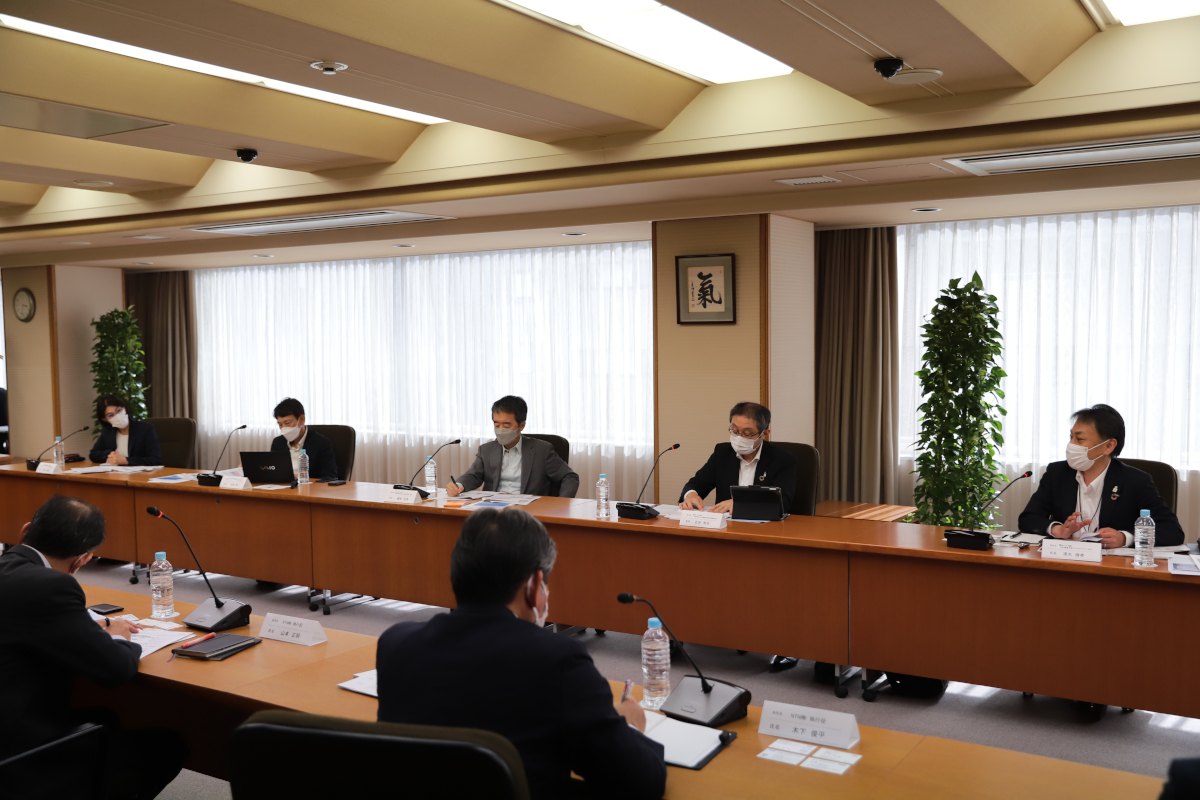
Topic 2 Carbon neutrality
- NTN
- We have set the goal of achieving carbon neutrality in Scope 1 and 2 by the fiscal year 2035 in our roadmap. Please tell us your opinions about our efforts to achieve the goals and how our organization should be.
- Yamada
- Many companies have set goals such as achieving carbon neutrality by 2030, but it is necessary to make a master plan on what can be done specifically to achieve the goal. The first thing a company should thoroughly implement is to reduce energy consumption. The next thing that should be done is to change the quality of energy, such as by purchasing renewable energy. Regarding energy conservation, most companies probably feel that they have done everything they can, but in reality, many companies have not been able to "visualize" energy. In the manufacturing industry, process management is performed to improve QCD, but we are in an era where energy management must be performed as well. Returning to the objectives and functions of each process, how much energy is required for the process and how much energy is actually used? The difference is a loss, so we will reduce that loss and consider whether there is any further area for improvement. Though an approach to energy saving in utility equipment is often taken, the important thing is to manage energy on the process side. I believe that holding discussions based on that fact will be the key to achieving carbon neutrality.
- NTN
-
We are visualizing how much we are using, but we also have to pay attention to how
much we
need. In this regard, a
common issue for Japanese manufacturers at present is that fewer engineers are able
to
understand production equipment.
We think it is important to be familiar with production technologies and equipment
in order
to visualize the amount of
energy required.
What are your thoughts on TCFD recommendations (hereafter, TCFD)? - Chikada
-
Sekisui House expressed its support of TCFD in 2018 and disclosed related
information for
the first time in 2019. At
first, we didn't know how to prepare the information, but through dialog with
institutional
investors we are trying to
refine it through trial and error. Last year, we changed the way we analyze
scenarios. When
considering the significance
of working on TCFD, it is meaningless unless we proceed to the point of creating a
system to
respond to climate change
within the company. However, in the past, most of the analysis of risks and
opportunities
was conducted by the
department in charge of the environment, and the results of the analysis were not
sufficiently shared within the
company. Response to TCFD must not be a "task for disclosure." Therefore, we asked
all
business divisions to consider
what the risks and opportunities of their business are. Then we gathered more than
500
items. By thinking within the
business divisions, I think it was very good that we shared the need to respond to
climate
change in our business
activities and personalized it. In addition, some of the risks actually gathered
were not
noticed by the secretariat. We
can confidently say that TCFD-related information disclosed this fiscal year
describes our
risks and opportunities.
What will be important in the future is how to manage this risk. There are risks that do not fall within the scope of conventional risk management, and responding to these risks is becoming an issue. In addition, we need to coordinate with companies that have newly joined the Group. Not surprisingly, those companies are responding to climate change in a similar way, but if they are group companies, they must be managed in an integrated manner. We are also considering responding to this issue. - NTN
- We expressed our support of TCFD last year and disclosed related information for the first time this fiscal year. The reality is that it is still a "task for disclosure." In addition, one of Sekisui House's excellent points in its efforts toward carbon neutrality is that the value of Net Zero Energy House (ZEH) is understood by customers and reflected in prices. We are also making environment-contributing products, but we are not able to reflect them in prices. It will naturally be costly to aim for carbon neutrality, but it is difficult to answer, "What party should assume the price burden?" We would like to discuss what scenarios to talk about with customers.
- Yamada
- When considering materiality in the future, I propose that you discuss it with younger generations who will be responsible for the future of each division. As in the case of Sekisui House, the risks and opportunities differ for each business division. By considering the risks and opportunities, identifying the materiality, and thinking about the story on their own, they will be able to naturally talk about the added value of the products when selling them.
- Kokubu
- No one has verified whether TCFD's disclosures are actually effective for investors' decisions. However, as it is also required by the Corporate Governance Code, measures need to be taken. To do so, you have to read the guidelines properly and understand what information is really needed in your company's own disclosures. Otherwise, it will be a "task for disclosure." What is needed is real reporting. This is also the case with carbon neutrality, and substantial activities are most important. In other words, instead of purchasing renewable energy, you should consider whether it is appropriate to change the energy structure.
- NTN
- Thank you very much for your various opinions. With regard to ESG management and carbon neutrality, we reaffirmed the importance of activities that are in line with the actual conditions of our company, as well as the importance of directly communicating with employees and customers. Based on the above recommendations, we will continue to promote our sustainability activities.
-
- 7th
-
Date
July 2021
Participants
Experts
-

-
Katsuhiko Kokubu
Professor, Kobe University Graduate School of Business Administration
-

-
Masaru Kaizaki
General Manager in charge of Sustainability Office, OMRON Corporation
-

-
Hideki Matsuoka
Special Project Manager, Asia-Pacific Human Rights Information Center
-

-
Eriko Nashioka (Facilitator)
Representative Director of Institute for Environmental Management Accounting, CPA
NTN
-
Toshinori Shiratori
Managing Executive Officer in charge of Human Resources, CSR, Information Technology, General Affairs, and EHS(Environment, Health & Safety) Integrated Management
-
Masaaki Yamamoto
Executive Officer and Corporate General Manager of Corporate Strategy Headquarters
-
Kenji Nono
Operating Officer and Corporate General Manager of Human Resources Headquarters and in charge of General Affairs/EHS (Environment, Health & Safety) Integrated Management
-
Shumpei Kinoshita
Deputy Corporate General Manager of Corporate Strategy Headquarters and Manager of Corporate Planning Department
-
Youichirou Mochida
Manager of Corporate Communications Department, Corporate Strategy Headquarters
-
Masayuki Yamazaki
Manager of EHS (Environment, Health & Safety) Integrated Management Department
-
Toshiyuki Kawaguchi
Deputy Corporate General Manager of Human Resources Headquarters and Manager of Personnel Department
-
Ryuma Mano
Manager of Procurement/Logistics Department, Global Procurement Headquarters
-
Masaaki Masumoto
Corporate General Manager of CSR Headquarters
-
Kouhei Iguchi
Manager of Corporate Value Promotion Department, CSR Headquarters
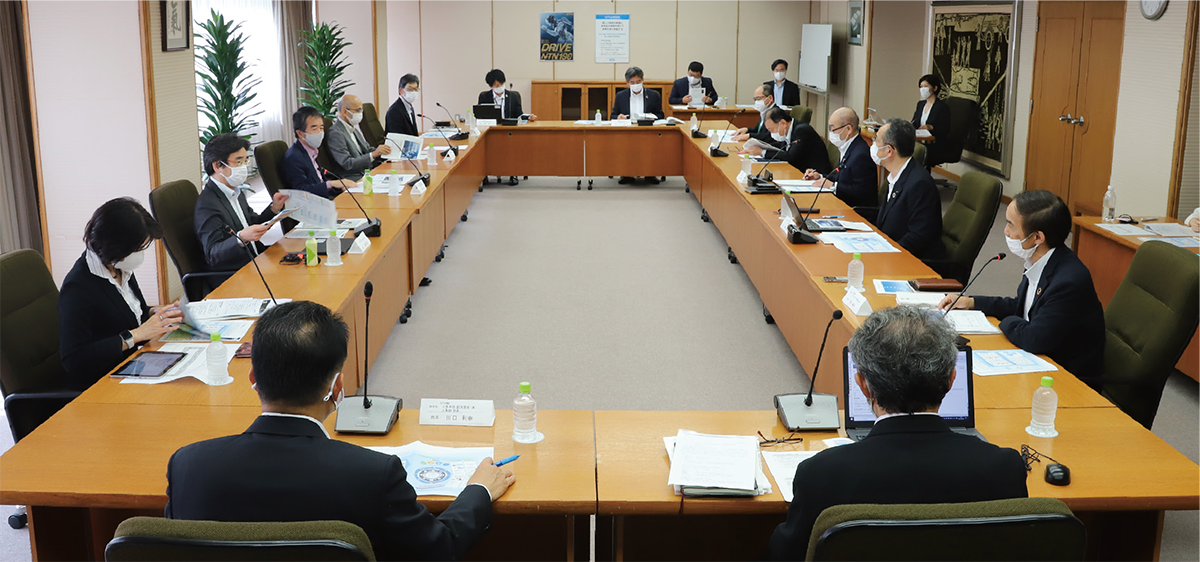
Topic 1 Evaluation of sustainability activities over the past year and proposals
- NTN
- The Sustainability Committee, which was established 2 years ago, took the lead in establishing the Human Rights Policy and identifying materiality in the previous fiscal year. In May of this year, following the resolution by the Board of Directors, the Company also expressed our support of TCFD recommendations. First of all, could you please give us an evaluation of our efforts over the past year?
- Experts
-
It can be said that NTN's sustainability activities are advanced with
consideration
given to
its industry type and the size of the Company. I think you have the same level
of
strategic
planning as other top companies in terms of support of TCFD recommendations and
materiality
identified.
However, if practice diverges from philosophy, the philosophy is meaningless. Going forward, it will be important to successfully link strategies and initiatives. - Experts
- Over the past year, I had the impression that the story has been successfully formed with factors such as the corporate philosophy, the value creation process, materiality, and NTN's strengths. How do you link this to your business? In addition, if you are able to complete the story by achieving a resultant increase in corporate value, I think it will be even better.
- Experts
- A framework for human rights initiatives is also being formulated. What I always tell companies is that it's hard to create a framework, but it gets even harder after it's created. Efforts to disseminate the system within the Company and ensure that each individual understands it will become important in the future.
Topic 2 Setting of materiality targets and integration into management
- NTN
- Last year, the Company identified 13 items of materiality for responding to SDGs. Currently, we are setting targets for identified materiality and KPIs and drafting specific measures. Regarding the setting of targets and KPIs, we are advancing discussions, including whether quantitative targets are necessary or whether qualitative targets are acceptable depending on the items. We are also seeking ways in which each employee will regard targets for the identified materiality "as his/her own targets."
- Experts
-
Many companies may misunderstand materiality. They consider materiality as
"important for
them." Materiality originally refers to how a company has an impact on important
social
issues, and does not constitute strategic importance for the company. In that
respect, NTN
probably identified materiality without any misunderstanding. However, it is
still
unclear
what specific involvement the Company will have. Sustainability activities
involve
solving
social issues using the 6 types of capital a company possesses. Important is a
vision in
which, even if a company does not gain profit in the short term, society will
gain
benefits
from a long-term perspective.
Regarding the setting of targets, if you are seriously addressing social issues as a company, qualitative targets are also acceptable. However, from a strategic perspective, qualitative information does not convey the actual status of activities. Quantitative information may also be useful to show that your efforts are not just words on paper. In addition, setting quantitative targets makes it easier for employees to tackle issues and make it easier to understand the direction of activities. - Experts
-
I think it is important to set materiality targets and KPIs based on the time
horizon with
attention paid to "by when." However, people will never focus only on
quantitative
targets.
If the Company provides a story of what value will be created, even if it is
qualitative,
the story will impress stakeholders. Conversely, even quantitative information
would
not
make sense if a story that impresses stakeholders could not be presented. For
example,
regarding diversity, it is important to consider what the Company wants to be
like
as a
result of setting KPIs for the number of women in managerial positions.
In addition, in order to disseminate materiality throughout the Company, it would be better to link the corporate philosophy with materiality. By showing the path that the implementation of the corporate philosophy is linked to materiality targets, I believe that each and every employee can regard materiality targets "as his/her own targets." - NTN
- We would like to review materiality once a year with the participation of management. However, human rights issues and the like cannot be addressed by the Company alone. The reality is that we are thinking about how far we should go while taking measures.
- Experts
- With regard to human rights, it is difficult in reality to look at all aspects of the supply chain, and it is also necessary to narrow down to important suppliers or otherwise set a certain range. For example, not only employees of the Company but also employees from temporary staff companies and subcontractors working at the Company's business sites can be set as targets. I think that a scope can be set on the importance of human rights issues by expressing that human rights issues occurring within the Company's business sites need to be proactively addressed by the Company.
- Experts
- Regarding human rights issues, although it is a prerequisite to identify human rights issues across all operations, we cannot watch all operations. The "Guiding Principles on Business and Human Rights" also state that companies should prioritize their efforts.
Topic 3 Human rights due diligence
- NTN
-
We established the "Management Policy" in December 2019. The policy states that
we
conduct
business by placing an emphasis on respect for human rights. The "Management
Policy"
is the
backbone of all our policies. In other words, this means we respect human rights
in
all of
our activities, including those of our domestic and overseas group companies.
Subsequently, in July last year, we established the "Human Rights Policy" and announced that we will work to establish a mechanism for human rights due diligence not only within the Company, but also across the entire supply chain. We have also identified "Respect for human rights" as one of our materiality issues. In April of this year, we redefined our "Procurement Policy" under the Management Policy. We are currently revising our "CSR Procurement Guidelines" and asking our suppliers to address human rights issues.
We have finally begun full-fledged efforts, but we would like to hear your recommendations on how to proceed with human rights due diligence and on the promotion of CSR by business partners. - Experts
- I think it is effective to link this with your corporate philosophy in order to instill your activities for respecting human rights into overseas regions. In conjunction with activities to disseminate NTN's corporate philosophy at home and abroad, what about taking measures so that the efforts to respect human rights will take root throughout the entire NTN Group? The point to note is that even if international human rights standards are common, perceptions of human rights may differ depending on the country, region, religion, etc. Taking a look at NTN's CSR questionnaire surveys, how respondents interpret concepts may differ depending on the country and region. I think you should proceed while being conscious of the necessity of responding on a case-by-case basis.
- Experts
- To ensure that awareness of human rights permeates the entire Company, employees need to be encouraged to understand the significance of human rights initiatives, risks associated with human rights issues, and the advantage that a company working on such issues can be chosen by customers. With regard to penetration beyond the company, it is important to understand that human rights issues are connected within the entire supply chain. Both NTN and the Company may audit business partners, but on the other hand, NTN and the Company are also suppliers and parties to be audited from the viewpoint of another company. In this way, I believe it is important to be aware that human rights-related issues are connected in operations from upstream to downstream throughout the supply chain.
- Experts
- It is very difficult for the Company alone to check subcontractors and sub-subcontractors of its primary suppliers. Procurement standards of many companies seem to require the suppliers of a company surveyed (secondary suppliers for the surveyor company) to be verified. In a chain reaction, third and fourth suppliers will be surveyed, but up to end suppliers cannot be investigated after all. In the case of SMEs, the definition of words may not be correctly understood, so it may be necessary to explain carefully or to divide and simplify the content of the questionnaire according to the size of a company.
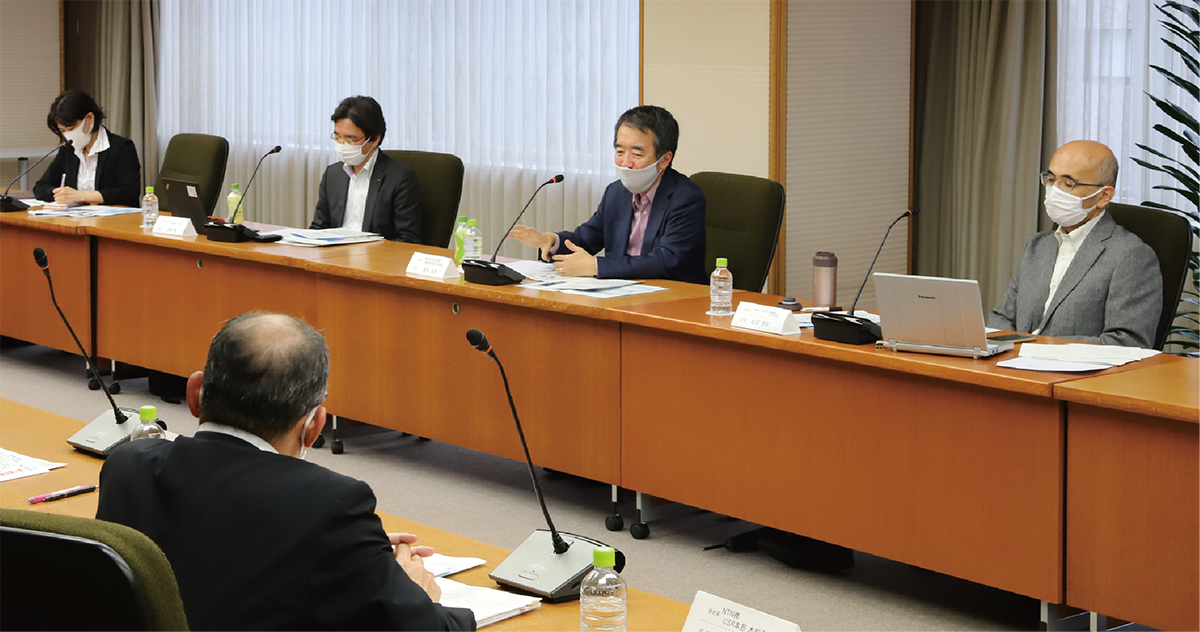
Topic 4 Initiatives based on TCFD recommendations
- NTN
- We have expressed our support of TCFD recommendations in May of this year. Currently, a cross-departmental team consisting of the Sustainability Committee and the heads of related divisions is in the process of conducting scenario analysis. Please advise us on how to proceed in the future.
- Experts
- Many Japanese companies express their support of TCFD recommendations, and the revised Corporate Governance Code now requires climate change disclosures based on TCFD or its equivalent international framework. TCFD recommendations originally called on financial institutions to disclose the financial impacts of climate-related risks and opportunities. Of course, even in the case of operating companies, those that generate a large amount of CO2 also need to disclose information based on TCFD recommendations. However, for a company like NTN whose CO2 emissions are not so significant in society as a whole, I think it would be better to consider qualitatively showing both the risks and opportunities related to climate change without focusing on disclosing quantitative targets.
- Experts
- OMRON expressed its support of TCFD recommendations in February 2019. Accordingly, we continue to discuss what business risks and opportunities exist in accordance with the framework of the recommendations. Last year, the Energy Solutions Headquarters conducted scenario analysis of risks and opportunities. In addition to reflecting the results in its business plan, the company included them as TCFD initiatives in last year's integrated report and this year's securities report. The company plans to disclose information from the perspective of what risks and opportunities it has in other businesses, but the company is proceeding cautiously without focusing on quantitative information.
- Experts
- As with TCFD recommendations, in the past year or two, the importance of disclosing ESG-related information has significantly grown in society. On the other hand, it is also a matter of concern that various guidelines may require more than what is really necessary. Many companies probably think that they should do something even bigger than what they should do in the first place. Rather than trying to follow developments in countries around the world on a superficial basis, what is important is keeping an eye on each of these trends, and to proceed with steady initiatives that can be put into practice in-house. ESGs should not be words on paper. I would like to look forward to seeing initiatives produce actual results.
- NTN
- We received an evaluation of our efforts over the past year. We have indicated the path that we should take going forward, and based on the content of the recommendations we received, we intend to continue our activities by disseminating such philosophy and systems throughout the Company, including Group companies. Thank you very much.
-
- 6th
-
Date
July 2020
Participants
Experts
-

-
Katsuhiko Kokubu
Vice President of Kobe University
-

-
Masaru Kaizaki
General Manager of Planning Department, Sustainability Office OMRON Corporation
-

-
Hideki Matsuoka
Special Project Manager, Asia-Pacific Human Rights Information Center(HURIGHTS OSAKA)
-

-
Eriko Nashioka
(Facilitator)Representative Director of Institute for Environmental Management Accounting, CPA
NTN
-
Toshinori Shiratori
Managing Executive Officer in charge of Human Resources, CSR, Information Technology, General Affairs, and EHS(Environment, Health & Safety) Integrated Management
-
Masaaki Yamamoto
Executive Officer and Corporate General Manager of Corporate Strategy Headquarters
-
Kenji Nono
Operating Officer in charge of Human Resources, General Affairs and EHS (Environment, Health & Safety) Integrated Management
-
Takanobu Ozawa
Deputy Corporate General Manager of Corporate Strategy Headquarters and Manager of Corporate Planning Department
-
Youichirou Mochida
Manager of Corporate Communications Department, Corporate Strategy Headquarters
-
Masayuki Yamazaki
Manager of EHS (Environment, Health & Safety) Integrated Management Department
-
Toshiyuki Kawaguchi
Manager of Personnel Department
-
Masaaki Masumoto
Corporate General Manager of CSR Headquarters
-
Kouhei Iguchi
Manager of Corporate Value Promotion Department, CSR Headquarters


Topic 1 Sustainability Promotion Activities
- NTN
- Through our business activities, we contribute to the resolution of social
issues
and aim to achieve a sustainable NAMERAKA Society. The biggest initiative in the
fiscal year under review was a change in the management regulations for
sustainability promotion activities. In 2006, we established rules for managing
CSR
activities, but at that time the policy related to "Responsibility" had a
relative
emphasis on compliance. While strengthening compliance, we have
reframed the significance of "Responsibility" based on the idea that we want to
be a
company that meets the expectations of society, as stated in our value creation
process. We have changed the term from "CSR" to "Sustainability",
established the "Sustainability Committee" last year, and have started
activities.
At this Sustainability Committee, "identification of our materiality" is one of the issues to be discussed. Currently, we have set up working teams centered on young employees and mid-career employees, referring to GRI standards and megatrends, identifying and evaluating issues, and working to narrow down our materiality. We would like to be able to announce it in the next fiscal year. - Experts
- Identifying materiality is important, but every company seems to find it extremely difficult to put it into practice. This is because all items are important. If everything is important, it becomes meaningless to identify materiality. Currently, NTN has set a large theme that is applicable to any company, so why not focus on more detailed items for discussion? When most Japanese companies plot their issues on a matrix, they use the 2 axes of "importance to society" and "relevance to business." However, GRI essentially wants companies to pay attention to not "relevance to business" but "impact on stakeholders' decision-making." I think it would be good to verify such aspect again.
- Experts
- OMRON also identifies its materiality. However, human resources management and risk management are regarded as a matter of course, and there is an increase in cases where companies are not evaluated favorably even if they conduct such management activities. We are making improvements to express the uniqueness of OMRON more strongly. I think it would be better for NTN to consider expressing the "uniqueness of NTN" in the same way. What is more important is the period subject to materiality issues and the management system. I think it is necessary to consider how and how long materiality issues are managed in the business management process and how external evaluations are incorporated into the Company's activities.
- NTN
- We would also like to ask about activities to instill our corporate philosophy. With the 100th anniversary celebrated in 2018, the corporate philosophy system was revised to establish NTN SPIRIT, which serves as the basis for employees'activities, and initiatives to put the corporate philosophy into practice were launched. We are promoting activities to disseminate our corporate philosophy through the 3 steps of "Recognition," "Empathy & Understanding," and "Practice." In 2019, we held the second NTN PROUD AWARD, which is an initiative to "Practice" our corporate philosophy. The number of employees who support these activities is increasing, and we intend to continue to firmly establish them on a global scale in the future. At the same time, we believe that there are issues regarding the positioning of the NTN PROUD AWARD in the corporate award system, how to reflect the practice of our corporate philosophy in our business goals and personnel assessment, and how to promote our corporate philosophy amid the coronavirus pandemic.
- Experts
- OMRON has also held TOGA(The OMRON Global Awards) since 2012 to support the
practice
of the company philosophy. The only team-based internal award system we have is
TOGA. When an employee wins the award, it is recorded in the
employee's personnel evaluation sheet. However, it is extremely difficult to
reflect
the practice of our corporate philosophy in personnel evaluation, and we are
currently looking for ways to link the system to evaluation
practices.
Regarding corporate philosophy activities amid the coronavirus pandemic, we first place emphasis on the health and safety of our employees, while at the same time fulfilling our supply responsibilities as a manufacturer and contributing to society through our business activities. Our employees participated in ventilator development in Spain, but this was not a top-level order, but a voluntary action. I think this is a good example of how our corporate philosophy has been disseminated and put into practice. - Experts
- In recent years, our corporate philosophy has become an extremely important part of our CSR activities. NTN's founders'"Frontier Spirit" and "Coexistence and co-prosperity Spirit" have a significant impact. The "Frontier" recalls "Innovation" and "Co-existence and co-prosperity" recalls "Creating Shared Value," bringing home the fact that NTN really wants to resolve social issues.
Topic 2 Human Rights
- NTN
- This year we formulated the Human Rights Policy. We signed the United Nations Global Compact in 2015 and changed our institutional designs to a Company with a Nominating Committee, etc. last year. These measures further clarified our Management Policy, and because "Respect for human rights" was included in the policy, we decided to formulate the Human Rights Policy. In the future, we will examine the method of operating this Human Rights Policy, the scope of applicable suppliers and the method of managing them.
- Experts
- I feel that a mechanism for human rights due diligence is very difficult to
operate, even though it is possible to create a mechanism or report to outside
parties that a mechanism has been created. The main point of internal
dissemination is that each and every employee understands human rights in a way
that
links them to their work. Human rights risks are also linked to management
risks. It
is necessary not only to create a system but also to continue
education in everyday life.
With regard to the scope (boundary) of suppliers, it seems that many companies actually ask Tier 1 suppliers to investigate things. - Experts
- The scope of application of the Human Rights Policy is also important. In the
case
of OMRON, a survey revealed that regular employees of OMRON accounted for less
than
the majority of all employees at some business sites. Based on
these examples, we believe that we should not apply the policy only to employees
who
are directly employed by OMRON, but should also apply to temporary staff
employees
and contractors'employees who work at the sites.
As for the boundary, we are implementing measures by including surveys targeting Tier 2 and subsequent-tier suppliers in Tier 1 requirements.
Topic 3 Environment
- NTN
- In the fiscal year ended March 2020, production was reduced due to the coronavirus pandemic, resulting in a decrease in CO2 emissions, but unit CO2 emissions were increased. In Stakeholder Dialog last year, it was pointed out that we should indicate a change (what volume of CO2emissions are reduced compared with the time when products before the reduction were used), rather than indicating a reduction of CO2 emissions. Therefore, since last year we have been quantifying environment-contributing products and consider setting the goal of eliminating CO2 emissions in the long run. Specifically, the total volume of CO2 generated (consumed) when products are used and CO2 generated by NTN's business activities is offset by CO2 reduced as a result of power generation with natural energy products, and this is an image of achieving the goal. Do you regard this as "net zero CO2emissions"?
- Experts
- It is better to say that "net zero CO2 emissions" refers to maintaining a balance between human-induced CO2 "emissions" and human-induced "absorption," such as through the promotion of tree planting. In this sense, it may be better to move away from the concept of "net zero." As the bearings industry has a fixed range of product types, we believe it will be difficult to switch to businesses that emit less CO2 and drastically reduce CO2 emissions. In addition, because of the concepts of SDGs and the circular economy, society as a whole is progressing toward a low-carbon society, with the automotive industry itself being targeted. Even if it is difficult for the bearings industry to do something drastic, I think it is important to consider the issue of climate change from the perspective of what "our company" can do for society.

Topic 4 How to Promote Business Activities in the coronavirus pandemic
- NTN
- We have identified the year ending March 2021 as "Crisis Response Period" and listed "Ensure the health and safety of employees" and "Prepare for future growth" as the major themes. Specifically, we intend to promote telework and respond to SDGs. Following the Declaration of State of Emergency, we have also been advancing telework with emphasis on the health and safety of our employees. In order to further promote telework in the future, issues such as the scope of application, attendance management rules, and personnel evaluation systems will emerge. In addition, with a focus on responding to SDGs, particularly on addressing climate change, an increasing number of parties endorse TCFD. We recognize that how to hold discussions by involving management will be an issue for the future, and we would like to hear your opinions on what kind of system should be in place and how to proceed.
- Experts
- OMRON announced in July 2018 that it will set sciencebased targets (SBT) for reduction of emissions of greenhouse gases, and then the issue of TCFD emerged. Because companywide supervision is necessary for TCFD, the Sustainability Office proposed to top management that TCFD should be endorsed. The linkage of financial information has been planned, but I believe that if you do not announce your efforts to tackle the issue of climate change, that will pose a problem.
- Experts
- Japanese companies are lagging far behind in disclosing how they manage climate change risks. Disclosure of risk information is thought to cause anxiety, but failure to disclose such information may cause more anxiety. Responding to the new coronavirus is also an important issue. I think that the overall direction is that the "weight of individuals" will increase. In society as a whole, focus will shift from organizations to individuals and the working environment will be changed to one in which employees can work more comfortably. Also, it will be necessary to fundamentally change the organization's work system and the method of reviewing positions.
- Experts
- As telework progressed, the situation in which women worked at home while doing housework and raising children, as well as the case in which they suffered from domestic violence, emerged as issues. I believe that companies will be asked what they can do to address these issues and to what extent they can address them in the future.
- Experts
- I feel that this coronavirus pandemic has shortened the time horizon for a vision we should aim for in the field of sustainability. While OMRON has begun formulating plans for the next decade, society may change at a faster pace. I think we need to address the issue with that in mind.
- Experts
- NTN established the Corporate Value Promotion Department two years ago. It is obvious that "Value" is important, but how about thinking about CSR as a whole with a focus on "Value" in the future? The point is to think about the value that can be provided to suppliers and the value that can be provided in response to climate change. As I told you about a post-coronavirus world earlier, "co-creation" in which we create something together will become more important than "competition," which has been given higher priority until now. I feel it is good to promote corporate activities from such a viewpoint.
-
- 5th
-
Date
June,2019
Participants
Experts
-

-
Katsuhiko Kokubu
Professor, Graduate School of Business Administration Kobe University
-

-
Masaru Kaizaki
General Manager of Planning Department, Sustainability Office OMRON Corporation
-

-
Hideki Matsuoka
Special Project Manager,
Asia-Pacific Human Rights Information Center
(HURIGHTS OSAKA)
-

-
Eriko Nashioka (Facilitator)
Representative Director of Institute for Environmental Management Accounting, CPA
NTN Participants
-
Itsuji Goto
Senior Managing Executive Officer in charge of CSR Headquarters
-
Hiroshi Nakano
Adviser
-
Kenji Nono
Manager of EHS (Environment, Health and Safety)
Integrated Management Department
-
Masayuki Yamazaki
Deputy Manager of EHS (Environment, Health and Safety)
Integrated Management Department
-
Toshiyuki Kawaguchi
Manager of Personnel Department
-
Kouhei Iguchi
Manager of Corporate Value Promotion Department
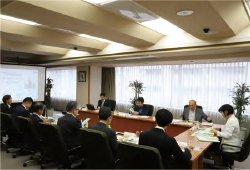
TOPIC 1 CSR management
- Opinion
- The essence of "responsibility" ("R" in CSR) is to be a company needed by
society.
In this sense, it is vital for a company to present its contribution to society
in
an easy-to-understand way to stakeholders. NTN Report 2018
describes this in the Value Creation Process section, which can be highly
evaluated.
In the next step, it is important to show in more detail how the company
generates
social value ("smooth society") as well as economic value. For
this purpose, we must perceive activities in each business area
cross-sectionally as
a process to create value.
At OMRON, TOGA (The OMRON Global Award) was started in 2012 as an initiative to
further put its corporate philosophy into practice. The number of participants
has
grown over the years, and more than 60,000 employees joined the event
in 2018. The source of this continuous development is the corporate culture
where
the management encourages employees to take on challenges, which leads to the
gradual increase of participants who agree to the purpose of the event,
which results in many employees realizing the significance of solving social
challenges. This year, NTN PROUD AWARD will be held for the second time. Based
on
the example of OMRON which shows that continuation leads to
transformation, we hope that the significance of this initiative will take a
firm
hold in NTN to enable the event to continue.
It is great that NTN is energetically working on initiatives to raise awareness of the corporate philosophy, such as Corporate Philosophy Dialog, distribution of NTN SPIRIT BOOK, and NTN PROUD AWARD. However, it is necessary to systematically incorporate respective measures into the annual plan for the purpose of promotion of raising awareness of the corporate philosophy.
TOPIC 2 Environment
- Opinion
- A company that proactively works on environmental management shows its long-term
vision with target figures (e.g. zero CO2 emissions by 2050),
specifies
the target by backcasting, and analyzes the concrete measures to realize the
target. Through such approach, the whole group can work on the reduction of
CO2 on the basis of the common standard over the medium- and
long-term.
NTN therefore should also consider the adoption of such approach when setting
the
environmental targets.
It is good that NTN discloses how much its environmentally friendly products contribute to the environment. However, expressing the reduction of emission as "contribution" can be misleading since there still is some level of emission when seen globally as a total volume. So, regarding the method of disclosure, it might be better to mention that NTN products are helpful as a means of reducing the total volume of emission.
TOPIC 3 Human rights
- Opinion
- Following the global focus on ESG investment, many companies have rapidly started initiatives on "business and human rights" in the recent two or three years. Development of basic policy on human rights on the basis of corporate philosophy, rather than human rights alone, makes it easier to share the policy globally among the whole group. It is important for NTN to clarify its positioning and connection among the corporate philosophy, NTN SPIRIT, and the basic policy, in formulating the basic policy on human rights.
TOPIC 4 Governance
- Opinion
- We can see from the Outside Director Dialog, which is contained in NTN Report 2018, that Outside Directors'opinions are actively voiced in NTN. The recent transition to a Company with Nominating Committee, etc., which is said to have the strongest management oversight function, means that Outside Directors have a stronger voice and their opinions are more widely reflected, resulting in enhanced corporate governance.
-
- 4th
-
Date
June 13,2018
Participants
Experts
-

-
Katsuhiko Kokubu
Professor, Graduate School of Business Administration Kobe University
-

-
Yoko Hiyama
Lawyer admitted in Japan and New York,
Hiyama & Kubota Law Offices
-

-
Masaru Kaizaki
General Manager of Planning Department, Sustainability Office
OMRON Corporation
-

-
Eriko Nashioka (Facilitator)
Certified Public Accountant and Representative Director at Institute for Environmental Management Accounting
NTN
-
Hiroshi Nakano
Corporate General Manager
of CSR Headquarters
-
Kenji Nono
Personnel Department Manager
-
Takanobu Ozawa
Corporate Planning Department Manager
-
Kunio Kamo
Corporate General Manager of Procurement Headquarters
-
Masahiro Kusunose
General Affairs & Environmental Management
Department Manager
-
Kouhei Iguchi
Corporate Value Promotion
Department Manager
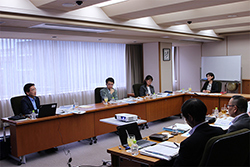
TOPIC 1 Corporate philosophy
- Opinion
- Creating methods of concretization such as the award system and the creation of a continuous project structure that employees voluntarily participate in, will be an important requirement for raising corporate philosophy awareness. It will be necessary for employees to think about the corporate philosophy code of conduct (NTN Spirit) and work on their own initiative to encourage actions inspired by the corporate philosophy. Continuing ongoing activities will also be effective, such as by having top management make personal visits to domestic and overseas business sites and convey the dialogs on the spirit of the corporate philosophy. In addition to organizing the NTN PROUD AWARD, we also recommend activities designed to make the corporate philosophy more relatable. For example, the results or processes of implementing NTN PROUD AWARD could be illustrated in videos shown to all employees.
TOPIC 2 Materiality
- Opinion
- NTN engages in a comprehensive set of CSR activities, but these activities could be improved by deciding on their materiality to indicate which way the company is heading. It is important to hold ample discussions with units such as business divisions and technical divisions in addition to head office divisions. It is also important for management to make decisions on the issues discussed. Materiality selection procedures are something the company decides on autonomously. Materiality should be determined by scoring and mapping analysis, consistently ensured to adhere to the Medium-term Management Plan. The company should ultimately consider SDGs and other issues of public concern while keeping strategic assessments of materiality in mind.
TOPIC 3 Environmental issues
- Opinion
- Producing environmentally friendly products is a very good thing. But quantifying the amount of CO2 reductions of certain products may cause a risk of greenwashing*1 in overseas business sites, so enough care is needed when disseminating information from Japan and overseas. Even for quantification done in conformance with the SBT (Science Based Target) *2 initiative, measurement accuracy and improvement levels should be prioritized instead of just releasing indicators. Scope 3 work also needs to cover approaches to improvements as well as just measurements. If possible, the ideal procedure would be to focus on key processes for CO2 reductions, and to include disclosure of reduction effects.
- *1:Fraudulently making a product appear to be environmentally friendly
- *2:Setting targets for companies that are consistent with scientific findings
TOPIC 4 Supply chain CSR, human rights and governance
- Opinion
-
Key suppliers should be designated and managed instead of just setting the same
standards for all suppliers, and we recommend gathering a wide range of
information.
Considering as global management, local areas should generally be handled by the head office, and ideally not left completely up to local business sites. It is also important to strengthen internal control functions and improve awareness among employees. Especially, in the area of human rights, human rights should be addressed on a global level even when no human rights issues exist in relation to local domestic laws. We recommend working on making human rights effective in overseas locations with different laws and cultures.
-
- 3th
-
Date
June 7, 2017
Participants
Experts
-
Katsuhiko Kokubu
-
Professor, Graduate School of Business Administration, Kobe University
-
Yoko Hiyama
-
Lawyer admitted in Japan and New York, Ethos Law Office, Ethos LPC
-
Kazuhiko Shiratori
-
Executive Researcher, The Japan Association for Chemical Innovation; Former Senior Manager, Sekisui Integrated Research Inc
-
Eriko Nashioka (Facilitator)
-
Certified Public Accountants / Representative Director, Institute for Environmental Management Accounting
NTNParticipants
-
Hiroshi Nakano
Director and Corporate General Manager, CSR Headquarters
-
Kouhei Iguchi
Project Leader, 100th Anniversary Planning &
Promotion Project
-
Yasuyuki Kuroda
General Manager, CSR Department, CSR Headquarters
-
Toshiyuki Matsutani
General Manager, General Affairs & Environmental Management Department
TOPIC 1 On the Centenary of the Company's Founding
- Stakeholder
- I feel that it is wonderful how you have sincerely responded to the results of the dialog during the past two years through evaluation and execution. Also, in the lead-up to commemorating your centennial in 2018, you are instilling your corporate philosophy. To achieve this, it is necessary to be linked to specific actions and to clarify what links the corporate philosophy to the concrete actions of employees. Doing this will enable each and every employee to contribute to society through his or her actions.
- NTN
- Our corporate philosophy reflects the "frontier spirit" and "co existence and
co-prosperity spirit" that permeated our company when it was established, as
expressed in the phrase, "creation of original technologies" and
"contributing to society." In order to ensure this corporate philosophy
permeates
the company for the next 100 years, it is necessary to explain it in a manner
that
enables employees to understand the link between their day-to-day
work and our corporate philosophy.
Ultimately, it would be ideal if our corporate philosophy were to guide our employees in their decision-making. We will work to ensure that each and every employee can contribute to society while meeting the needs of our customers.
TOPIC 2 The Need for CSR in the Midst of Global Expansion
- Stakeholder
- In order to promote CSR on a global basis, it is important to cooperate with local companies and with society. Toward that end, it is also useful to "identify materiality (issue of particular importance among wide range of CSR initiatives)" in addition to instilling the corporate philosophy, so please consider that aspect. From a management perspective, "promoting diversity" is also an important factor. For the global expansion, promoting diversity is required with the understanding of executive officers.
- NTN
- We have been considering the materiality of our group by placing our focus on the Sustainable Development Goals (SDGs) adopted by the United Nations. This will enable each base outside Japan to be rooted in its own region through its business operations. Regarding diversity, we have been implementing a variety of measures, including training of executive officers, and we will take steps to create an environment of mutual respect with each of our bases outside Japan and with our respective cultures.
TOPIC 3 Environmental Initiatives
- Stakeholder
- I believe that you have positioned itself at a fairly high level in terms of reducing the environmental impact of its business operations. In the future, I would expect to see initiatives involving different aspects than in the past through the establishment of an environmental strategy with a long-term perspective. This could involve reducing the environmental impacts and other innovations in the scope of supply chain. In such a case, it would be necessary to develop indicators, such as the environmental contribution, that could be understood by a third-party, what it means the objectivity of data. I believe that products that contribute to society ‐ not only from your own company but also developed in collaboration with other companies ‐ will be essential for the sustainable society.
- NTN
-
From now on, we would like to concentrate not only on environmental efforts at our factories but also on creating environmental value. We recognize that the objectivity of data is also important, and we are promoting visualization of environment-related figures as non-financial indicators, such as third-party evaluations of CO2 data. Regarding products that contribute to the environment, we are beginning to formulate such criteria, and we intend to develop products that would be effective over the medium and long terms.
(The above is the summary of the experts'comments.)
-
- 2th
-
Date
June 9,2016
Participants
Experts
-
Katsuhiko Kokubu
Professor, Graduate School of Business Administration Kobe University
-
Yoko Hiyama
Lawyer admitted in Japan and New York, Ethos Law Office, Ethos LPC
-
Kazuhiko Shiratori
-
Senior Manager, Sekisui Integrated Research Inc.
-
Eriko Nashioka (Facilitator)
-
Certified Public Accountants / Representative Director, Institute for Environmental Management Accounting
NTN
-
Hiroshi Nakano
Director and Corporate General Manager, CSR Headquarters
-
Toshiyuki Matsutani
General Manager, General Affairs & Environmental Management Department
-
Yasuyuki Kuroda
General Manager, CSR Department, CSR Headquarters
TOPIC 1 CSR at NTN
- Opinion in
2015 -
- Further coordination between business activities and CSR activities will be important in the future.
- It is vital to include "Value Creation" as part of corporate activities for the further CSR development.
- Progress
-
- In addition to energy conservation and global environmental protection in main businesses, we are coordinating business activities with natural energy utilization and contributions to local communities even in the natural energy business and other new business fields.
- As a way of "value creation" through products, with consideration for the global environment, local communities, personnel and other factors, we are incorporating CSR activities in our business activities from the perspective of achieving a sustainable society.
- Opinion in
2016 -
- Taking CSR priority level and direction as CSR materiality indices, it is desirable to disclose related progress using nonfinancial KPI. Materiality should reflect changing conditions and may be adjusted every three years.
- CSR targets (as well as business targets) should not be just action plans. Maintaining them as benchmarks is also important during times of low growth.
- As a form of value creation, it is important to assess materiality in the medium and long term based on major objectives.
- Advancing local production for local consumption is necessary for energy as a whole in Japan. Businesses that contribute to this area are admirable.
- Reporting should clearly communicate the key points of this year (not across the board).
TOPIC 2 Global
- Opinion in
2015 -
- Building up a global network is needed for the mutual interaction within the NTN Group.
- Progress
- We hold Global Management Conferences and CSR Global Meeting in English, and we advance the sharing of information by localizing various databases into English and publishing "e-Talk21" in-house electronic news (combined English and Japanese editions) and the seasonal "Blue Horizon" in-house bulletin (combined English and Japanese). We also engage in mutual personnel exchanges, through overseas trainee and International Internship Program systems, as well as by receiving trainees from overseas factories.
- Opinion in
2016 -
- The CSR Global Meeting is useful for sharing the issues of each area as they are different in every region.
- "For New Technology Network" is important for expanding networking ties.
TOPIC 3 Compliance
- Opinion in
2015 -
- Sharing information with transparency is crucial.
- Progress
- We established Internal Control Sections in the Overseas Offices of the General Manager in every region. As we strengthen the compliance promotion structures of the NTN Group Overseas, we are advancing measures for each region based on their conditions and characteristics. For these measures, we are conducting overall management in the head office and monitoring them in the Internal Auditing Department.
- Opinion in
2016 -
- The corporate governance code is being handled correctly. It is originally a medium and long term way of thinking, stating that it is for all stakeholders. Showing medium and long term value creation is important.
- There might be some cases that the compliance systems do not work properly. Distance between workplaces and management may result in a failure of compliance. Communication and feedback processes are important to keep encouragement from becoming pressure.
TOPIC 4 Environment
- Opinion in
2015 -
- We would like to see more information on environmentally friendly products designed as "value creation."
- Progress
- We are advancing businesses in fields that are "value creation" domains, including natural energy, EV business for the electrification and safety revolution of automobiles, robots that work and live with people, and service and solution businesses that utilize big data. In the natural energy field, we established Green Power Park as an energy recycling model. This empirical experiment utilizes power generated by vertical axis wind turbines and micro hydro turbines, to charge electric vehicles, to illuminate vegetable farms and for other purposes.
- Opinion in
2016 -
- Green Power Park is a good effort that strengthens public infrastructure not only for the company but for the community. It also represent a significant contribution to society.
- Bearings themselves, as the core business, probably still have considerable potential. We believe there would be more added value in rotation and movement of bearings in terms of ease of turning and stopping, etc. We expect them to have new functions as well.
TOPIC 5 100th Anniversary and Future Issues
- Opinion in
2016 -
- Approaching your 100th anniversary, we want you to devise new ways to show "value creation." The corporate philosophy is a place to return as the company continues to thrive. We hope that you approach the 100th anniversary in a way that makes employees feel proud.
- Investigating, for example, the CSR consciousness of employees in areas other than compliance on a global scale could be valuable. Investigation is necessary to confirm the permeation of the philosophy.
-
- 1th
-
Date
May 22, 2015
Participants
Experts
-
Katsuhiko Kokubu
Graduate School of Business Administration, Dean and Professor, Kobe University
-
Yoko Hiyama
Lawyer admitted in Japan and New York, Ethos Law Office, Ethos LPC
-
Kazuhiko Shiratori
-
Senior Manager, Sekisui Integrated Research Inc.
-
Eriko Nashioka (Facilitator)
-
Certified Public Accountants / Representative Director, Institute for Environmental Management Accounting
NTN
-
Hiroshi Nakano
Director and Corporate General Manager, CSR Headquarters
-
Toshiyuki Matsutani
General Manager, General Affairs & Environmental Management Department
-
Yasuyuki Kuroda
General Manager, CSR Department, CSR Headquarters
Outline of Dialog
- NTN's CSR report contains a lot of information for a B to B company (Business to Business, companies selling products and services to other companies, instead of general consumers). Further coordination between business activities and CSR activities will be important in the future.
- After a system has been built, promoting CSR activities is tend to be difficult to become part of routine procedures. It is vital to include "Value Creation" as part of corporate activities for the further development.
- For globalization, it is vital that employees around the world are aware of NTN's overall image and significance of CSR. Building up a global network is needed for the mutual interaction within the NTN Group. It is also important to provide a framework that allows the most suitable people for the job to work by incorporating a sense of global value with suitable positions and jobs.
- Companies that face problems related to compliance have issues with their corporate culture. Even companies have an appropriate system for compliance; it would be possible not to function properly. Sharing information with transparency is a key point. Some countries have different levels of compliance with laws and regulations, so it is also important to develop a framework for each country.
- Environmental efforts designed with the concept of Reduce, Reuse and Recycle are reaching their limit with regards to the Recycle aspect. The issue in the future will be focused on the Reduce aspect. We would also like to see more information on environmentally friendly products designed to "create value."
Issues that have been raised from the feedback we received will be assigned an order of priority in spans. We will continue to hold this kind of stakeholder dialog with a view to taking a pro-active stance to issues related to the environment, society, governance and other fields.
-